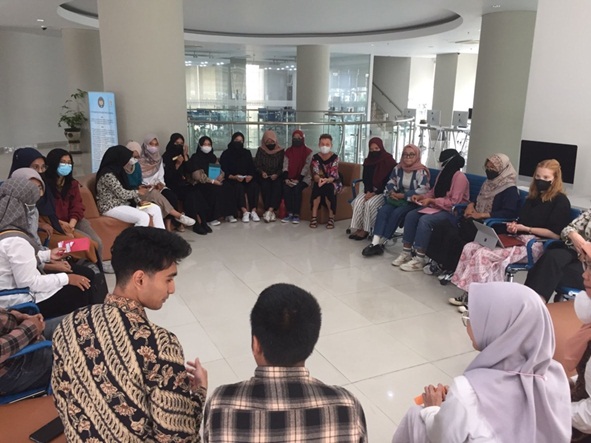Telp : (0274) 550843 Ext 512
You are here
Chayyu and Filto Share Post-Workshop Experience on Diversity Teaching-Teaching Diversity
Primary tabs

YOGYAKARTA (14/11/2022) - Chayyu Zalena Hawie and Felisius Octavianus Bowe are two students from the German Language Education department who attended the Diversity Teaching-Teaching Diversity Workshop. Both have participated in the workshop for 2 weeks.
During the workshop, Professor Schulze gave participants an understanding of the structure of the project and gave specific tasks to students at the camp in Kulonprogo. She emphasized that the natural environment of Segajih Village, an educational center located in the middle of a tropical rainforest, significantly supports students' education.
Schulze also provided information on extracurricular activities and cultural activities at the learning site. She also presented workshops designed and supervised by students from five schools in Yogyakarta. She was pleased to see that UNY students have actively participated in projects implemented at their university, raising their awareness of heterogeneity and contributing to change in their social and academic environment.
Chayyu Zalena Hawie and Felisius Octavianus Bowe then enhanced the diversity-sensitive learning process for German learners by adapting some of the workshop content for school-based study groups to the peer level. Mechanisms of language discrimination were studied in interactive small groups. Participants emphasized the importance of sensitive language expression when dealing with variables such as multilingual heterogeneity, origin, appearance, or religiosity.
"In cross-country cooperation like this, it is seen that diversity is not only about recognizing diversity itself, but also about the attitudes that emerge in response to diversity," said Professor Dr. Dra. Wening Sahayu M.Pd., as the head of German Language Education at FBSB UNY. These attitudes include respect for differences and acceptance of individual diversity. However, the view that sees diversity as normal and as a wealth is still not widely pervasive, especially in the education sector in Indonesia and Germany.
"In the future, positive views and ways of dealing with diverse students based on them will become more central in the awareness and actions of lecturers, teachers and students in both countries," she concluded. (Astri)
Kontak Kami
Telp : (0274) 550843 Ext 512
Copyright © 2026,
